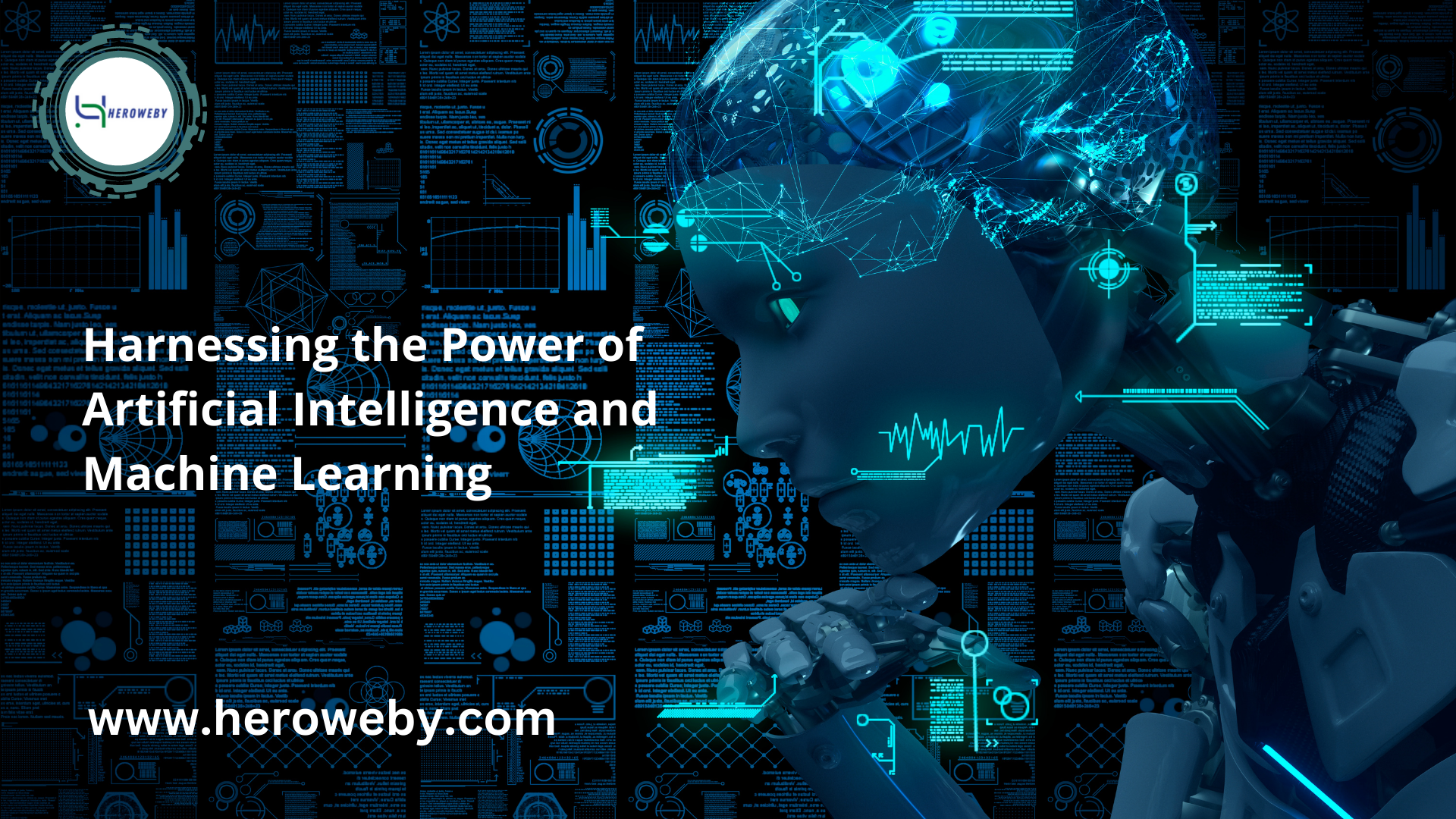
Harnessing the Power of Artificial Intelligence and Machine Learning
Artificial Intelligence (AI) and Machine Learning (ML) are revolutionizing sectors and changing how we live and work in today’s quickly changing digital landscape.
The world is changing as a result of these cutting-edge technologies, which range from personalized recommendations to autonomous automobiles. In this blog, we’ll look at the foundations of AI and ML, their uses, and how they might spur creativity.
Understanding Artificial Intelligence
The development of computer systems that can carry out tasks that traditionally require human intelligence is referred to as artificial intelligence. It includes a broad range of methods and algorithms that provide computers the ability to analyze data, reason, and make choices.
Statistical models and algorithms used in machine learning, a branch of artificial intelligence, enable computers to become better at a given activity over time.
Applications of Artificial Intelligence and Machine Learning
Numerous industries have seen substantial advancements in AI and ML. In the healthcare industry, AI algorithms examine patient data to help with diagnoses, spot trends, and suggest treatments.
ML algorithms in finance assist with fraud detection, trend forecasting, and investment portfolio optimization. Personalized recommendations and AI-powered chatbots in retail improve customer experiences.
Self-driving automobiles and intelligent traffic control systems are demonstrating the transformational potential of AI and ML in the transportation sector. These innovations raise overall efficiency, lessen traffic, and improve road safety.
AI and ML in manufacturing enable predictive maintenance, production process optimization, and quality control. These technologies are used by energy businesses to forecast demand, optimize electricity generation, and improve sustainability.
Challenges and Ethical Considerations
It is critical to address ethical issues as AI and ML develop. Pay close attention to the possibility of algorithmic bias, data privacy, and the effect on employment. Fairness, accountability, and openness must be ensured during the creation and implementation of AI systems. To further protect sensitive information, data security and privacy laws should be strengthened.
Conclusion
Machine learning and artificial intelligence have the power to revolutionize entire sectors. These technologies are having a significant impact on a variety of industries, including healthcare, banking, retail, and transportation.
However, this quick advancement must be accompanied by ethical considerations and responsible development. We can use the power of AI and ML to build a future that benefits society as a whole by resolving concerns about bias, privacy, and job displacement.
In order to create a future where AI and ML improve our lives while respecting our values, collaboration between policymakers, researchers, and industry leaders is becoming increasingly important as we adopt these technologies.



